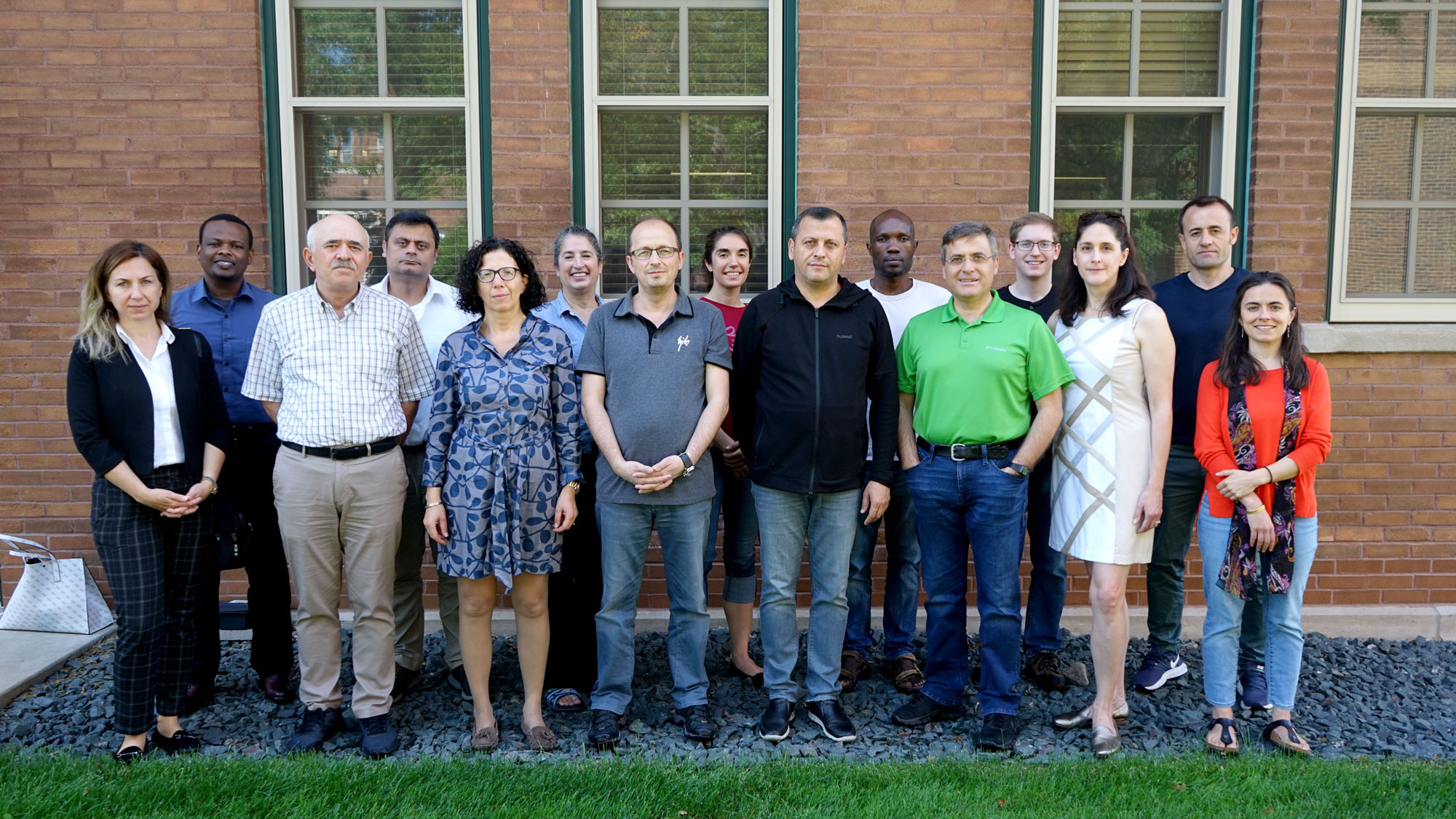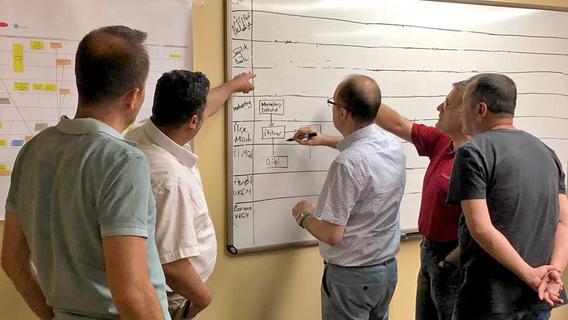
Cochran Fellowship participants and instructors at the end of the two-week training in June | Photo by Anna Pendleton
Highly pathogenic avian influenza (HPAI)—a disease that is lethal to domesticated chickens, turkeys, and ducks—is rare. But when a costly 2015 outbreak ripped through the United States, Minnesota farmers found themselves at the forefront.
Minnesota producers supply nearly one-fifth of all U.S. turkey production—more than any other state. Minnesota was also the epicenter of the HPAI outbreak, which was presumptively diagnosed during the last week of February 2015 at the Minnesota Veterinary Diagnostic Laboratory (VDL) and confirmed as HPAI H5N2 at the National Veterinary Services Laboratories on March 4, 2015.
Through the work of the VDL, the U of M was a leader in supporting the tracking and containment of the 2015 outbreak. Four years later, the College of Veterinary Medicine (CVM) and Center for Animal Health and Food Safety (CAHFS) have continued their commitment to helping the industry, at home and around the globe, to better mitigate and understand avian influenza.
In June, CAHFS hosted six fellows from Turkey as part of the U.S. Department of Agriculture (USDA) Foreign Agricultural Service program’s Cochran Fellowship. Roughly 600 Cochran fellows visit the U.S. for each year to work with universities, government agencies, and private companies to receive hands-on training related to current issues in agricultural trade.
“The main goal of the fellowship program was to learn how to respond properly to an outbreak," says Maria Sol Perez Aguirreburualde, DVM, PhD, deputy director of CAHFS. "If we can communicate the USDA's perspective on best practices for responding to an outbreak to other countries, we can support the adoption of World Trade Organization agreements to facilitate fair trade and they can safeguard their trade with us better while improving their local sanitary practices. A team of experts at CVM delivered a comprehensive program that helped fellows see how certain things at farm level can impact trade.”
While on campus, Cochran fellows toured the VDL and a biosecurity trailer which was built in response to the 2015 outbreak and where the university’s Extension team, including extension educator and poultry specialist Abby Neu, MS, continues supporting training activities for practitioners across the state.
The fellows learned about risk assessment, how to manage animal disease outbreaks, as well as the biosecurity methods U.S. farms use to keep the foreign poultry trade healthy from the beginning. They also visited disease surveillance facilities for the Minnesota poultry industry in Willmar, Minnesota.
“We were able to introduce the visitors to the key participants in the outbreak so they could get perspectives from people who dealt with our avian influenza outbreak firsthand,” says Carol Cardona, DVM, PhD, professor and Pomeroy Endowed Chair in Avian Health in the Department of Veterinary and Biomedical Sciences, who was part of the team that delivered the Cochran training program. “The specific need was to address avian influenza, but the scientific and regulatory underpinnings of what we shared are applicable to any disease outbreak.”

